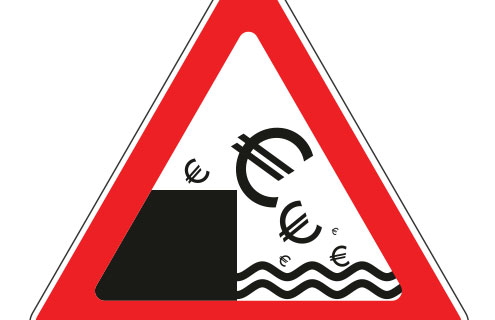ESMA: EU market vulnerable to HQLA shortage
18 March 2016 Paris
 Image: Shutterstock
Image: Shutterstock
A bear market may cause tension in some asset market segments due to a scarcity of high-quality collateral, according to the European Securities Markets Authority (ESMA).
ESMA’s latest Report on Trends, Risks and Vulnerabilities examines the effect that two major shifts in the European Central Bank’s (ECB) monetary policy, the introduction of a negative deposit rate in June 2014 and the launch of quantitative easing in January 2015, had on the rising costs of high-quality collateral in seven EU countries over the past two years.
The analysis is based on a dataset from 7 March 2013 to 21 September 2015 and matches information on European repo markets with securities lending markets and bond-specific characteristics.
“Empirical results show that the cost of obtaining high-quality collateral, proxied by specialness of government bond repos, increases with demand in the cash market from short selling activities, even in calm financial conditions,” explained the report.
“In bear market conditions—when good collateral is most needed—this may lead to tensions in some asset market segments. Collateral reuse may alleviate these tensions, but requires transparency and monitoring of risks from collateral chains.”
The report concluded that issues raised by quantitative easing will likely be alleviated by the ECB and national central banks’ securities lending programmes, which would address potential collateral shortages.
The countries used for the case study were Austria, Belgium, Finland, France, Germany, Italy and the Netherlands.
ESMA’s latest Report on Trends, Risks and Vulnerabilities examines the effect that two major shifts in the European Central Bank’s (ECB) monetary policy, the introduction of a negative deposit rate in June 2014 and the launch of quantitative easing in January 2015, had on the rising costs of high-quality collateral in seven EU countries over the past two years.
The analysis is based on a dataset from 7 March 2013 to 21 September 2015 and matches information on European repo markets with securities lending markets and bond-specific characteristics.
“Empirical results show that the cost of obtaining high-quality collateral, proxied by specialness of government bond repos, increases with demand in the cash market from short selling activities, even in calm financial conditions,” explained the report.
“In bear market conditions—when good collateral is most needed—this may lead to tensions in some asset market segments. Collateral reuse may alleviate these tensions, but requires transparency and monitoring of risks from collateral chains.”
The report concluded that issues raised by quantitative easing will likely be alleviated by the ECB and national central banks’ securities lending programmes, which would address potential collateral shortages.
The countries used for the case study were Austria, Belgium, Finland, France, Germany, Italy and the Netherlands.
NO FEE, NO RISK
100% ON RETURNS If you invest in only one securities finance news source this year, make sure it is your free subscription to Securities Finance Times
100% ON RETURNS If you invest in only one securities finance news source this year, make sure it is your free subscription to Securities Finance Times



